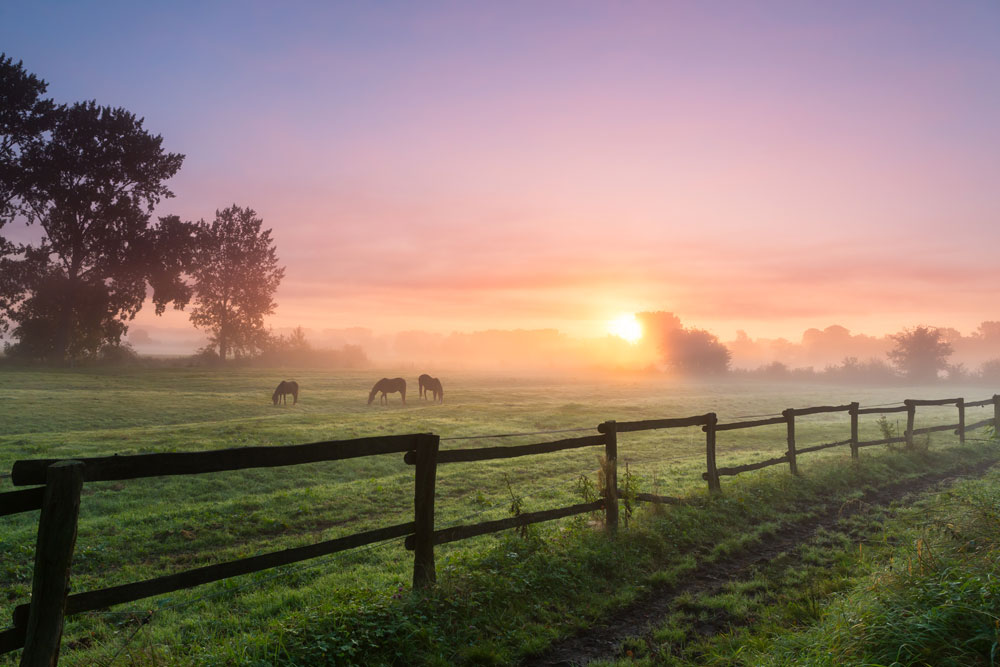
Fertilizing horse pastures can help them provide the best nutrition for grazing animals. In order to know what you should use to fertilize your fields and when to use those products, you need to do soil tests.
Bob Coleman, PhD, State Extension Specialist at the University of Kentucky, recommended that you first figure out what you need to apply in terms of phosphorus, potassium and nitrogen.
“Nitrogen is always needed for grasses,” he noted. “You should probably add nitrogen in the fall, maybe in September-October. This will usually entail about 40 pounds of actual nitrogen per acre. Some people apply 30 pounds per acre, followed by another application of 30 pounds per acre (first in September and again in October, leaving about a month in between applications). This strengthens the grass going into winter so it’s strong and vigorous in the spring.”
Coleman said most horse property owners should apply nitrogen in the fall rather than in the spring. “A spring application will stimulate the grass, but then we tend to get more grass than we can use,” he said. “With vigorous spring growth, the horses can’t stay ahead of it. This is might not be a good use of your nitrogen dollars.”
On the other hand, if a pasture has had a tough couple of years, putting some nitrogen on in the spring will stimulate the grass and give you an opportunity to see what you have.
“You can see how much grass is actually there and where it might need some help,” noted Coleman. “It might show that you do need to get that field some help like reseeding.”
Coleman said not producing more grass than your horses can keep up with will make pasture management easier. However, he added that if you are grazing and haying a field, you might want to fertilize heavily in the spring to get better grass growth for hay production.
Compost for Horse Pasture Fertilizer
Some horse owners compost their manure and old bedding and use it for fertilizer. “This is a great way to use it, and a positive thing for the pasture,” noted Coleman. “Just make sure it is properly composted.”
He said you want the internal parasite (worm) eggs killed by the heat of the composting process. There also is the consideration of what that compost can supply and what your pasture needs.
“You don’t want to just be adding carbon that needs more nitrogen in order to break down,” said Coleman. “It needs to already be broken down, especially if it’s a wood product bedding such as shavings.”
Compost is great for fertilizing horse pastures. Focus on applying it on just the part of the grazing area that’s being rested. “This gives the compost even more time to break down,” explained Coleman. “It all boils down to management and timing. You need to have a plan.”
Coleman said when you are testing your soil, you also need to consider if the pH of your soil is appropriate. Most commonly, horse pastures will need lime added to adjust pH.
